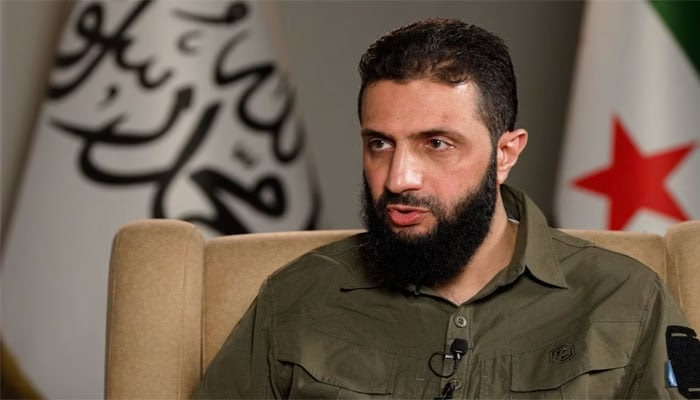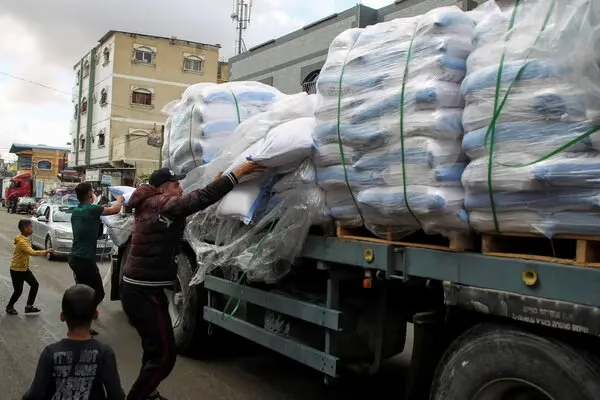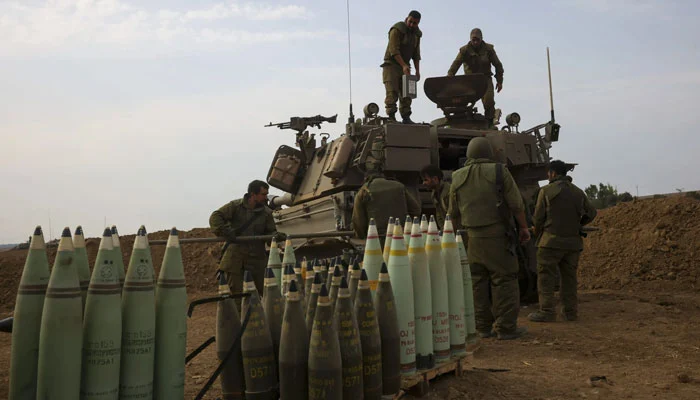In a renewed push against the Syrian government, Abu Muhammad al-Julani, leader of the rebel group Hayat Tahrir al-Sham (HTS), has declared their ultimate goal to overthrow President Bashar al-Assad’s regime. Speaking to American media from an undisclosed location in Syria, al-Julani expressed confidence in the downfall of the government, labeling it a dead regime.
“The Fall of Assad’s Regime is Inevitable”
Al-Julani attributed the regime’s survival over the years to external support from Iran and Russia. “Iran tried to restore this regime and buy more time for it, while Russia also tried to support it, but the truth is that this regime is dead,” he said. The rebel leader claimed that the seeds of the regime’s defeat were inherent in its structure, citing years of corruption, mismanagement, and reliance on foreign backers.
The HTS leader also highlighted his group’s recent gains, including capturing the historic and strategically significant city of Aleppo. Yesterday, Hayat Tahrir al-Sham fighters reportedly forced Assad’s army to retreat from the city of Hama, marking another blow to the regime’s control over key regions.
Foreign Forces in Syria: A Key Concern
Al-Julani emphasized his desire for Syria to regain full sovereignty, free of foreign military presence. “I believe that as soon as the current government falls, foreign forces will no longer be needed in Syria,” he stated, referring to the presence of Russian, Iranian, and other international forces in the war-torn country. He suggested that the withdrawal of foreign forces could pave the way for stability and a new phase of governance.
Hayat Tahrir al-Sham: A Brief Background
Hayat Tahrir al-Sham, previously linked to Al-Qaeda, has been a significant force in the Syrian civil war. The group has undergone strategic and ideological shifts over the years, seeking to rebrand itself as a local opposition force rather than a transnational jihadist group. Their recent offensives signal a resurgence of their influence in Syria’s ongoing conflict.
The Battle for Aleppo and Hama
HTS’s recent operations began with the capture of Aleppo, a city of immense historical and geopolitical significance. This victory marked a turning point, boosting the group’s morale and signaling its ability to challenge the Assad regime’s forces effectively. Following Aleppo, HTS fighters entered Hama, forcing government troops to withdraw from the area. The swift advancements have raised questions about the Assad regime’s ability to maintain its hold on power.
A Nation in Turmoil
The Syrian conflict, which began in 2011, has left millions displaced and the country’s infrastructure in ruins. Despite periods of relative calm, the resurgence of rebel activity has reignited tensions. Analysts suggest that HTS’s recent gains could lead to intensified fighting in other regions, potentially destabilizing the fragile status quo.
What Lies Ahead for Syria?
The path forward for Syria remains uncertain. While HTS and other opposition groups push for regime change, the Assad government continues to rely on support from Iran, Russia, and its remaining loyalist forces. The international community watches closely, with some nations expressing concerns about the humanitarian implications of renewed conflict.
Al-Julani’s confidence in the regime’s collapse, however, signals a potential shift in Syria’s political landscape. Whether the rebel forces can maintain their momentum or face a renewed counteroffensive remains to be seen.
Global Reactions and the Humanitarian Crisis
The international community remains divided on the Syrian conflict. While some nations advocate for dialogue and a political solution, others have expressed support for opposition forces seeking to oust Assad. The ongoing violence has exacerbated Syria’s humanitarian crisis, with millions of civilians in desperate need of aid.
Al-Julani’s remarks have also reignited debates about the role of foreign forces in Syria. The rebel leader’s call for the withdrawal of all foreign troops reflects a broader sentiment among Syrians who seek an end to external interventions that have prolonged the conflict.



